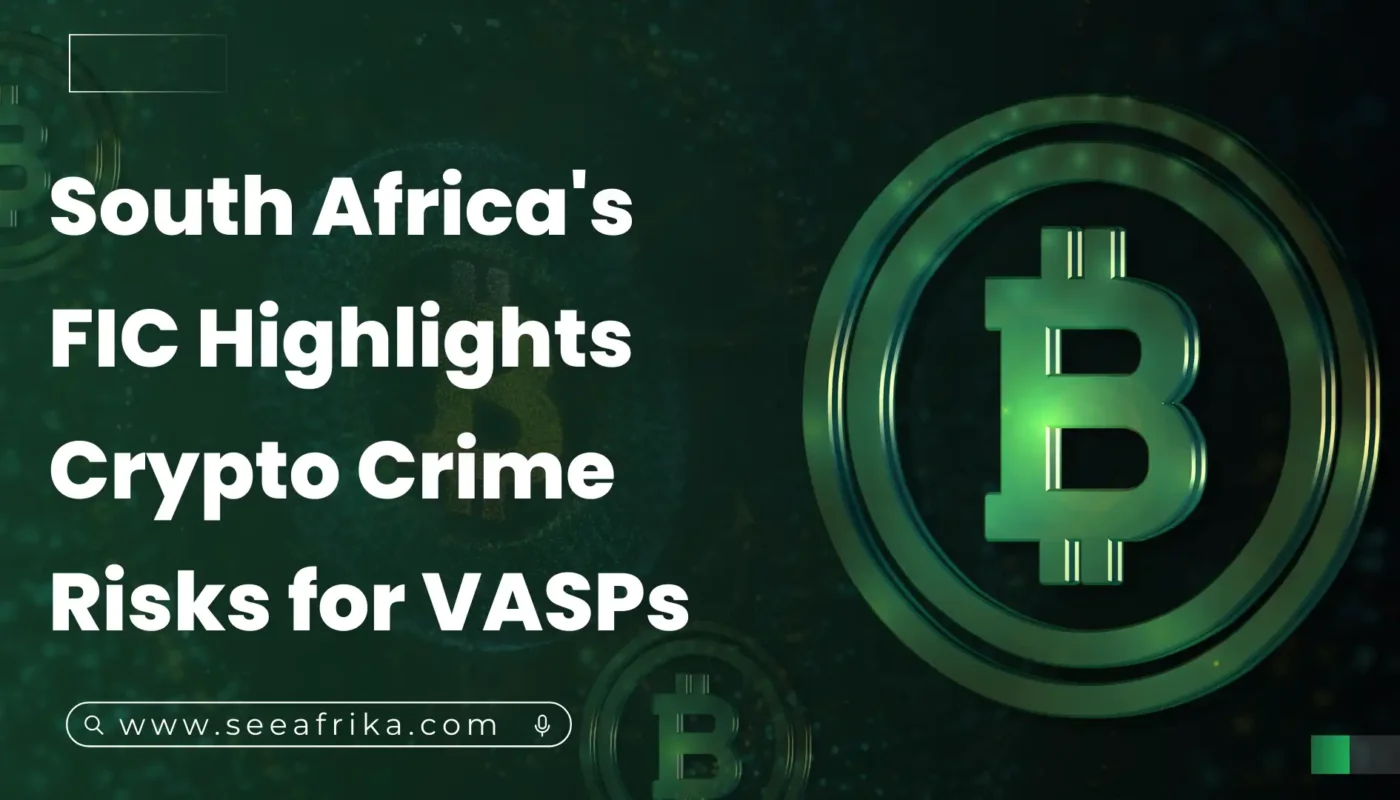South Africa’s Financial Intelligence Centre (FIC) has raised alarms about the growing risks of criminal activities targeting Virtual Asset Service Providers (VASPs).
In its latest sector risk assessment report, published on April 1, the FIC highlighted significant vulnerabilities in the crypto industry and urged stronger regulatory compliance and vigilance among crypto exchanges.
Since 2022, South Africa has made significant strides in regulating its crypto industry. The Financial Sector Conduct Authority (FSCA) now requires all crypto firms to obtain operating licenses. By the end of 2024, 248 firms had been licensed. However, challenges persist as authorities work to clamp down on unlicensed operators and refine supervisory measures.

Key Findings from the FIC Report
The FIC classified the South African crypto asset service provider (CASP) sector as carrying a “high” inherent risk for money laundering (ML) and terrorist financing (TF). This warning comes as cryptocurrency adoption in South Africa surges, with over 5.8 million citizens—nearly 10% of the population—now owning digital assets.
The report underscores that while cryptocurrencies offer speed and decentralization, these features make them attractive tools for criminal syndicates.
The FIC identified several alarming trends:
- Criminal Exploitation: Non-crypto criminals are increasingly using cryptocurrencies to launder money. Common tactics include purchasing assets via fake intermediaries, converting them into privacy coins, and using mixers to obscure transaction origins.
- Severe Crimes Linked to VASPs: Nine VASPs were found to be involved in activities such as child exploitation, terrorism financing, and darknet purchases.
- Suspicious Transactions: Red flags include deposits from mixing services, wallets linked to multiple cards, and transactions involving gambling platforms or anonymous shell companies.
Related news:
Regulatory Actions and Recommendations
To mitigate these risks, the FIC has mandated that VASPs:
- Implement robust Know Your Customer (KYC) procedures.
- Monitor transactions for suspicious patterns, such as frequent small deposits below reporting thresholds or transfers between public and privacy-focused blockchains.
- Report any suspicious activities to authorities promptly.
The report also highlighted ongoing prosecutions, including a case involving a South African national who made a Bitcoin payment to a terrorist organization in 2017. These actions reflect South Africa’s commitment to tightening its cryptocurrency regulatory framework.
Crypto Adoption Across Africa
While South Africa grapples with crypto crime risks for VASPs, other African nations are experiencing rapid cryptocurrency adoption. According to Chainalysis’ 2024 Crypto Adoption Index:
- Nigeria leads the continent and ranks second globally in crypto adoption. Despite government restrictions, about 33% of Nigerians have invested in cryptocurrencies.
- Ethiopia is the fastest-growing market for retail-sized stablecoin transfers, with a 180% year-over-year increase.
- Countries like Kenya, Morocco, Ghana, and Uganda are also seeing significant growth in crypto usage.
Africa’s overall on-chain transaction value reached $125 billion in 2024, marking a $7.5 billion increase from the previous year. Factors driving this growth include:
- Financial Inclusion: Cryptocurrencies offer an alternative for those excluded from traditional banking systems.
- Currency Volatility: Many Africans use digital assets as a hedge against inflation.
- Cross-Border Payments: Cryptocurrencies provide a cost-effective solution for remittances.
The Road Ahead
As cryptocurrency adoption grows across Africa, balancing innovation with regulation will be crucial. South Africa’s proactive measures against crypto crime risks for VASPs could serve as a model for other nations. However, fostering consumer education and improving regulatory clarity will be essential to unlocking the full potential of digital assets on the continent.
If you enjoy our content, you’ll love the amazing stories we share on Facebook, Telegram, and Twitter!
Subscribe and follow us for more premium SeeAfrika content.




